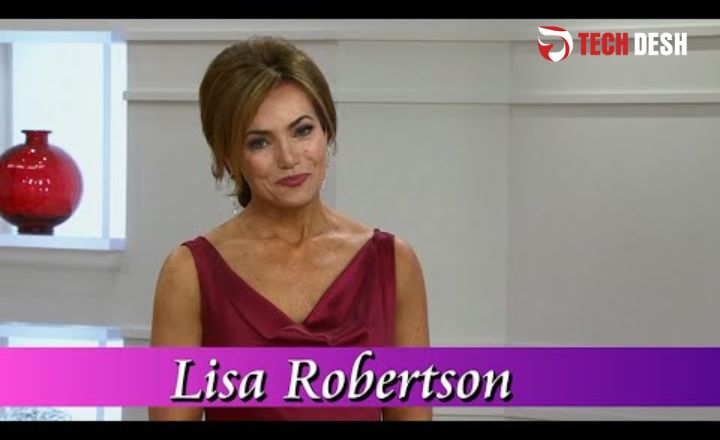QVC has long been a staple in the world of home shopping, offering a wide array of products from jewelry to kitchen gadgets. Over the years, countless hosts have graced the screen, each with their unique style and approach. However, not every host has won the hearts of viewers. In this article, we delve into the topic of the most disliked host on QVC, exploring the reasons behind viewer discontent, the implications for the network, and the broader conversation around television personalities.
Understanding Viewer Sentiment
When it comes to television hosts, especially in a platform as interactive as QVC, viewer sentiment plays a crucial role. The relationship between hosts and viewers can be complex, often influenced by factors such as presentation style, personality, and even the types of products being sold.
For QVC, where hosts often engage directly with customers through live calls and social media, the stakes are even higher. A host’s ability to connect with the audience can significantly impact sales, brand loyalty, and the overall perception of the channel. However, when a host falls out of favor, it can lead to a notable backlash from viewers.
Factors Contributing to Dislike
There are several reasons why a host might earn the title of the most disliked host on QVC:
- Presentation Style: Hosts who are overly aggressive in their sales tactics or who come across as insincere can quickly alienate viewers. In the world of home shopping, authenticity is key, and audiences typically prefer hosts who convey genuine enthusiasm.
- Personality Clashes: Not every host’s personality will resonate with every viewer. Some individuals may find certain hosts annoying, overly dramatic, or simply not relatable. This disconnect can lead to a significant drop in favorability.
- Controversial Opinions or Comments: Hosts who share opinions or make comments that viewers find offensive or out of touch can face backlash. Given the diverse QVC audience, hosts need to be mindful of their words and actions.
- Product Choices: The products a host is associated with can also influence viewer opinions. If a host promotes items that viewers consider low quality or unappealing, that can reflect poorly on the host themselves.
- Social Media Presence: In today’s digital age, a host’s social media behavior can impact their reputation. Negative interactions with fans or controversial posts can lead to backlash and heightened dislike.

The Impact of Being Disliked
Being labeled as the most disliked host on QVC can have significant repercussions. For one, it can directly affect sales. If viewers dislike a host, they may be less likely to purchase products they are promoting, leading to decreased revenue for QVC.
Additionally, negative sentiment can impact a host’s career. Many QVC hosts rely on their popularity for job security; being disliked can lead to reduced airtime or even being let go from the network. As a result, the pressure to maintain a positive public image is immense, and hosts often go to great lengths to connect with their audience.
Viewer Reactions and Controversies
The phenomenon of a disliked host is not new to QVC. Over the years, certain hosts have sparked controversy, leading to viewer backlash. Some notable incidents include:
- Social Media Backlash: Hosts have faced criticism for their comments on social media, leading to organized campaigns against them. Viewers often take to platforms like Twitter and Facebook to express their dissatisfaction, creating a ripple effect that can further escalate tensions.
- Online Polls and Discussions: The internet has facilitated numerous discussions about QVC hosts, with fans creating polls and forums to voice their opinions. These platforms often highlight the most disliked hosts, amplifying their unpopularity.
- Public Statements: In some cases, hosts have made public statements addressing viewer concerns, attempting to mitigate backlash. However, these attempts can sometimes lead to more controversy if viewers feel the host isn’t taking their feedback seriously.
The Most Disliked Host: A Case Study
While it’s difficult to pinpoint a single host as the most disliked host on QVC, certain individuals have consistently garnered negative feedback from viewers. One such host is often mentioned in discussions surrounding viewer discontent.
Host Profile
This host, known for their energetic presentation style, has been with QVC for several years. While they possess a significant following, they also have a large contingent of viewers who express dislike for their approach. Common complaints include their tendency to overhype products and a perceived lack of genuine enthusiasm.
Viewer Feedback
Viewer feedback regarding this host can be polarizing. Some fans appreciate their high energy and commitment to selling products, while others find it overwhelming. Negative comments often center on:
- Sales Techniques: Many viewers feel that the host employs overly aggressive sales tactics that detract from the shopping experience. Instead of feeling informed, some viewers report feeling pressured to buy.
- Authenticity: Critics argue that the host lacks authenticity and that their enthusiasm seems forced. This perception can alienate viewers who prefer a more genuine presentation.
- Product Knowledge: Some viewers have expressed frustration with the host’s product knowledge, claiming they often provide inaccurate information. This can lead to mistrust and further diminish their credibility.
Social Media Sentiment
Social media plays a significant role in shaping public perception of QVC hosts. The host in question has faced considerable backlash on platforms like Twitter, where viewers openly express their dissatisfaction. Hashtags related to their name often trend during QVC broadcasts, highlighting the ongoing debate about their suitability as a hosts.

Navigating Discontent: Strategies for Improvement
For hosts labeled as the most disliked host on QVC, there are several strategies to turn the tide and regain viewer favor:
1. Authentic Engagement
One of the most effective ways to rebuild trust with viewers is through authentic engagement. Hosts should strive to connect with their audience on a personal level, sharing stories and experiences that resonate with viewers. This can help humanize the host and foster a sense of community.
2. Listening to Feedback
Hosts should actively listen to viewer feedback and adapt their presentation styles accordingly. This can involve modifying sales tactics, improving product knowledge, or simply being more mindful of their communication style.
3. Building a Support Network
Creating a support network with fellow hosts can provide valuable insights and encouragement. Collaborating with other popular hosts can also help improve a disliked host’s image by association.
4. Focusing on Product Quality
To regain credibility, hosts should prioritize promoting high-quality products that resonate with viewers. By aligning themselves with well-reviewed items, hosts can improve their reputation and help restore viewer trust.
Conclusion
In conclusion, the topic of the most disliked host on QVC serves as a compelling case study in the world of television personalities. Viewer sentiment is a powerful force that can shape the careers of hosts and impact the overall perception of a brand. While certain hosts may face challenges in gaining viewer favor, there are numerous strategies they can employ to turn the tide.
As QVC continues to navigate the complexities of home shopping, the importance of authentic engagement, feedback, and diversity in hosting cannot be overstated. By prioritizing these elements, QVC can enhance its brand reputation and ensure that its hosts connect meaningfully with viewers. Ultimately, the journey of a host is a reflection of their ability to resonate with the audience, and the evolution of this dynamic will shape the future of home shopping.


